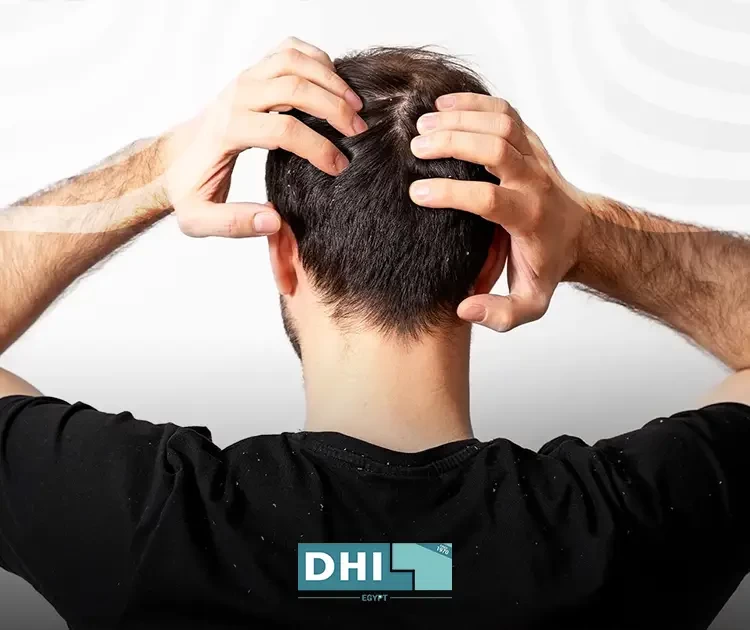Hair transplantation offers a life-changing solution for those struggling with significant hair loss. It's a permanent and effective procedure, but the appearance of scabs after surgery can cause some temporary worry.
Following a hair transplant, some people experience scabs. Let's delve into the reasons behind this and explore solutions. We'll discuss when scabs are a normal part of healing and when it's time to seek medical advice to ensure a smooth recovery.
Causes of Scabs Following Hair Transplantation
Scabs formation after hair transplantation is a normal occurrence. During the surgery, the surgeon makes tiny holes in the recipient area for the hair follicles. This results in some fluid being released and possibly collecting (edema). A few days after the procedure, this fluid exits through the open pores or holes, dries, and combines with dead skin cells to form scabs that resemble hair dandruff.
Scabs can also appear in the donor area as a result of hair follicle extraction, which causes small blood spots to dry and turn into scabs.
also know: The appearance of the crusts after hair transplantation
When does hair fall out after transplantation?
Scabs is a common experience following a DHI hair transplant, typically appearing within 2-3 days. Initially, these flakes may feel firmly attached to the scalp. However, don't worry! Following your doctor's instructions and maintaining a good hair care routine will help the dandruff gradually shed by around day 10.
The shedding timeframe can vary depending on the amount, size, and overall density of the dandruff. You might also notice some short hairs coming out alongside the dandruff flakes. This is completely normal and part of the natural healing process.
Scabs removal following hair transplantation
You can now feel at ease knowing that scabs after hair transplantation is a normal part of the recovery process. Here are some steps recommended by top surgeons for removing scabs after hair transplantation:
- Resist the urge to touch or scratch the scalp. This can irritate the area and potentially damage the newly transplanted hair.
- To soothe any itchiness, gently mist the transplanted area with a warm salt solution. This will help loosen the scabs naturally.
- After 3 days, you can start washing your hair with a mild baby shampoo. Use warm water for rinsing to avoid irritation.
- From the 8th day, it is recommended to massage the scalp gently after moistening it with circular movements to accelerate the healing process and get rid of scabs.
- It is essential to use a pH5 shampoo and dandruff remover foam.
- The foam should be applied gently to the scalp and left for 30 minutes to soften the crusts (do not use your fingernails to remove crusts).
The Importance of Removing Hair Scabs Following Transplantation
While scabs after hair transplantation are normal, it's important to manage them effectively after the initial healing period (around day 10). Here's why:
- Reducing itching: scabs cause itching, which may prompt the person to scratch it or remove it in the wrong way.
- Healthy growth of hair follicles: scabs create a moist environment that promotes bacterial growth. Removing scabs prevents bacterial infection and inflammation, leading to healthy hair growth.
- Minimize the Risk of Scarring: Itching and scratching scabs can dislodge hair follicles, potentially leading to scarring and affecting your hair transplant's final outcome.
Why Salt Solution Matters After Hair Transplants
As we discussed, using a salt solution spray to moisten the scalp after hair transplantation (starting the day after surgery) offers several benefits:
- Boosts Follicle Recovery.
- Protects against infection.
- Minimizes scabs.
- Moisturize the scalp and skin.
- Reduce skin irritation.
Conclusion
Scabs are a normal and temporary side effect of the healing process following hair transplantation. However, if you experience persistent crusts beyond the expected timeframe, don't hesitate to reach out!
The DHI Center in Egypt has a team of experienced doctors dedicated to supporting your journey and maximizing your comfort. Take the first step towards optimal results – contact them today!

